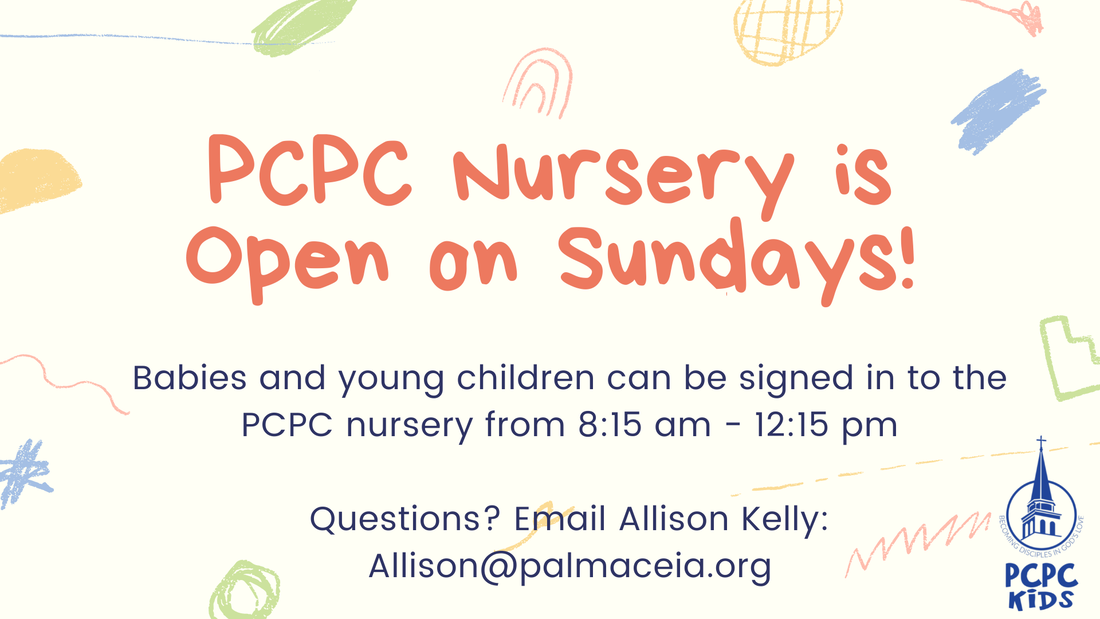Fourteenth Sunday after Pentecost- Week of Aug. 29, 2021 - Proper 18
Praying
Begin your devotion time by praying this prayer: Holy God, you equip us to love and serve you. Give us the strength and courage to stand up for truth and share your love with the world. Amen.
Reflect on the Way of Love together: This week’s practice on the Way of Love is PRAY. What are the prayer practices you do in your household? How might you make prayer a regular part of your everyday life?
preparing
The rule of love — Christian ed lesson
August 25, 2021 by Joelle Brummit
That’s not fair! This is a refrain heard many times by parents of young children. Our youngest disciples tend to like clear-cut expectations and rules. And they expect those around them, especially adults, to adhere to these tenets no matter what. It can be difficult for children to see there is much more grey area in the world than there is black and white. Opportunities to talk about prioritizing God and people over rules and expectations are important to our children’s ongoing faith formation. In this lesson, your children will explore our call to love God and people over rules and traditions.
Begin the time with your children by talking about rules. Ask them to share some rules that are part of your household, their school or other places where they spend time. Discuss why they think these rules exist. Then, ask them whether they think these rules are helpful or harmful. Discuss when a rule might cause more harm than good.
Prepare to read Mark 7:1-8. (Note that the Gospel lectionary selection also includes verses 14-15 and 21-23. This lesson focuses only on the first seven verses of the passage.) Create a context for the reading. Tell your children that today’s passage takes place once Jesus and his disciples have been traveling and teaching for some time. People have been listening to Jesus and what he teaches them differs in some ways from what their other religious leaders have told them. Some of these religious leaders grow concerned that Jesus will encourage people to stop following some of the practices that they think are important to God. They also worry that the people will not think that the religious leaders know everything about how to be close to and worship God. In this reading, members of one of these groups of religious leaders, the Pharisees, question why Jesus and his disciples do not follow one of the religious practices they believe is important. Encourage your children to notice what practice causes concern and how Jesus responds to the Pharisees’ criticism.
Read aloud Mark 7:1-8. Ask your children to identify the cause of the Pharisees’ criticism of Jesus and his disciples. Why were they upset with Jesus and his followers? The reason for their pointed questioning was that this group was eating with “defiled hands.” Explain that this means they were eating food without washing their hands. While this may seem like a good reason to speak out against Jesus and his followers – especially in the midst of a pandemic – the Pharisees were not concerned about germs. It was tradition that people wash their hands and their food before eating it for religious reasons. For many years, religious leaders studied the writings of Moses to figure out how God wanted God’s people to live. Some determined that God wanted everything that went into people’s bodies to be “pure.” This meant that people needed to wash food and their hands before eating because this is what God expected. To not wash your hands or your food meant you were going against God. In other words, the Pharisees are telling Jesus and his followers that they do not love God because they are not following this rule.
Next, ask your children to recount Jesus’ response to the Pharisees. What does Jesus say when they claim Jesus and his followers are going against God by not following this religious practice? You may want to read one or more of the statements that Jesus makes and ask your children to wonder about what they mean. Share that Jesus points out that washing hands and food is a tradition human beings came up with. God does not require people to do this. When people are focused on following these traditions or rules, they forget “the commandment of God.” Later in Mark’s Gospel, Jesus will share the greatest commandment: to love God and to love your neighbor (Mark 12:29-31). In other words, Jesus says that strictly following traditions like hand-washing can make us forget that we are called to love God and one another above all else.
Reading
Psalm 15
Reader:
Lord, who may enter your Temple?
Who may worship on Zion, your sacred hill?
Congregation:
Those who obey God in everything
and always do what is right,
whose words are true and sincere,
and who do not slander others.
They do no wrong to their friends
nor spread rumours about their neighbours.
They despise those whom God rejects,
but honour those who obey the Lord.
They always do what they promise,
no matter how much it may cost.
They make loans without charging interest
and cannot be bribed to testify against the innocent.
Reader:
Whoever does these things will always be secure.
From TEV translation
Use the script above as your own a call to worship. Then repeat it as a responsive prayer of confession.
We called ourselves to worship with a description of those who have earned the right to worship God by the way they live every day. But we know we do not always live that way or earn that right. Let us admit to God the ways we have failed.
Lord we want to obey You in everything and always do
what is right.
But we often obey our own wants and wishes instead.
We wish all our words were true and sincere. We do not mean to slander others.
But we are surprised and disappointed at the words that come out of our mouths.
We want to treat our friends well. We do not intend to
spread rumors.
But we too often mistreat those we love most and we do
spread rumors.
In our heads we honor those who honor you
But we act like we have more respect for whoever is
popular at the moment.
We like to think that we always do what we promise, no matter how much it costs, that we make loans without interest, and that we could not possibly be bribed.
But we know that is not true.
Forgive us and remake us into the people you created us to be.
We pray in Jesus’ name. Amen.
James 1:17-27
Every generous act of giving, with every perfect gift, is from above, coming down from the Father of lights, with whom there is no variation or shadow due to change.
In fulfillment of his own purpose he gave us birth by the word of truth, so that we would become a kind of first fruits of his creatures.
You must understand this, my beloved: let everyone be quick to listen, slow to speak, slow to anger;
for your anger does not produce God's righteousness.
Therefore rid yourselves of all sordidness and rank growth of wickedness, and welcome with meekness the implanted word that has the power to save your souls.
But be doers of the word, and not merely hearers who deceive themselves.
For if any are hearers of the word and not doers, they are like those who look at themselves in a mirror;
for they look at themselves and, on going away, immediately forget what they were like.
But those who look into the perfect law, the law of liberty, and persevere, being not hearers who forget but doers who act--they will be blessed in their doing.
If any think they are religious, and do not bridle their tongues but deceive their hearts, their religion is worthless.
Religion that is pure and undefiled before God, the Father, is this: to care for orphans and widows in their distress, and to keep oneself unstained by the world.
Mark 7:1-8, 14-15, 21-23
7:1 Now when the Pharisees and some of the scribes who had come from Jerusalem gathered around him,
7:2 they noticed that some of his disciples were eating with defiled hands, that is, without washing them.
7:3 (For the Pharisees, and all the Jews, do not eat unless they thoroughly wash their hands, thus observing the tradition of the elders;
7:4 and they do not eat anything from the market unless they wash it; and there are also many other traditions that they observe, the washing of cups, pots, and bronze kettles.)
7:5 So the Pharisees and the scribes asked him, "Why do your disciples not live according to the tradition of the elders, but eat with defiled hands?"
7:6 He said to them, "Isaiah prophesied rightly about you hypocrites, as it is written, 'This people honors me with their lips, but their hearts are far from me;
7:7 in vain do they worship me, teaching human precepts as doctrines.'
7:8 You abandon the commandment of God and hold to human tradition."
7:14 Then he called the crowd again and said to them, "Listen to me, all of you, and understand:
7:15 there is nothing outside a person that by going in can defile, but the things that come out are what defile."
7:21 For it is from within, from the human heart, that evil intentions come: fornication, theft, murder,
7:22 adultery, avarice, wickedness, deceit, licentiousness, envy, slander, pride, folly.
7:23 All these evil things come from within, and they defile a person."
Reader:
Lord, who may enter your Temple?
Who may worship on Zion, your sacred hill?
Congregation:
Those who obey God in everything
and always do what is right,
whose words are true and sincere,
and who do not slander others.
They do no wrong to their friends
nor spread rumours about their neighbours.
They despise those whom God rejects,
but honour those who obey the Lord.
They always do what they promise,
no matter how much it may cost.
They make loans without charging interest
and cannot be bribed to testify against the innocent.
Reader:
Whoever does these things will always be secure.
From TEV translation
Use the script above as your own a call to worship. Then repeat it as a responsive prayer of confession.
We called ourselves to worship with a description of those who have earned the right to worship God by the way they live every day. But we know we do not always live that way or earn that right. Let us admit to God the ways we have failed.
Lord we want to obey You in everything and always do
what is right.
But we often obey our own wants and wishes instead.
We wish all our words were true and sincere. We do not mean to slander others.
But we are surprised and disappointed at the words that come out of our mouths.
We want to treat our friends well. We do not intend to
spread rumors.
But we too often mistreat those we love most and we do
spread rumors.
In our heads we honor those who honor you
But we act like we have more respect for whoever is
popular at the moment.
We like to think that we always do what we promise, no matter how much it costs, that we make loans without interest, and that we could not possibly be bribed.
But we know that is not true.
Forgive us and remake us into the people you created us to be.
We pray in Jesus’ name. Amen.
James 1:17-27
Every generous act of giving, with every perfect gift, is from above, coming down from the Father of lights, with whom there is no variation or shadow due to change.
In fulfillment of his own purpose he gave us birth by the word of truth, so that we would become a kind of first fruits of his creatures.
You must understand this, my beloved: let everyone be quick to listen, slow to speak, slow to anger;
for your anger does not produce God's righteousness.
Therefore rid yourselves of all sordidness and rank growth of wickedness, and welcome with meekness the implanted word that has the power to save your souls.
But be doers of the word, and not merely hearers who deceive themselves.
For if any are hearers of the word and not doers, they are like those who look at themselves in a mirror;
for they look at themselves and, on going away, immediately forget what they were like.
But those who look into the perfect law, the law of liberty, and persevere, being not hearers who forget but doers who act--they will be blessed in their doing.
If any think they are religious, and do not bridle their tongues but deceive their hearts, their religion is worthless.
Religion that is pure and undefiled before God, the Father, is this: to care for orphans and widows in their distress, and to keep oneself unstained by the world.
Mark 7:1-8, 14-15, 21-23
7:1 Now when the Pharisees and some of the scribes who had come from Jerusalem gathered around him,
7:2 they noticed that some of his disciples were eating with defiled hands, that is, without washing them.
7:3 (For the Pharisees, and all the Jews, do not eat unless they thoroughly wash their hands, thus observing the tradition of the elders;
7:4 and they do not eat anything from the market unless they wash it; and there are also many other traditions that they observe, the washing of cups, pots, and bronze kettles.)
7:5 So the Pharisees and the scribes asked him, "Why do your disciples not live according to the tradition of the elders, but eat with defiled hands?"
7:6 He said to them, "Isaiah prophesied rightly about you hypocrites, as it is written, 'This people honors me with their lips, but their hearts are far from me;
7:7 in vain do they worship me, teaching human precepts as doctrines.'
7:8 You abandon the commandment of God and hold to human tradition."
7:14 Then he called the crowd again and said to them, "Listen to me, all of you, and understand:
7:15 there is nothing outside a person that by going in can defile, but the things that come out are what defile."
7:21 For it is from within, from the human heart, that evil intentions come: fornication, theft, murder,
7:22 adultery, avarice, wickedness, deceit, licentiousness, envy, slander, pride, folly.
7:23 All these evil things come from within, and they defile a person."
Reflecting and Responding
Adult and Small Child
Read: Mark 7:1-8, 14-15, 21-23
Reflect: What a puzzling story! At first it sounds like Jesus is saying we don’t need to wash our hands or our dishes. That’s not quite right, though. When Jesus was alive, some people had special rules about what they would eat and how they would prepare their food as a way to show their love for God. Jesus was fine with that, unless following those rules got in the way of loving God. He says that although we should be careful about what we put in our mouths when we eat, we should also be careful about what comes out of our mouths when we speak. If the words we say aren’t kind and loving, then we’re not doing a very good job of living the way God wants us to, no matter how clean our dishes are.
Respond: Take a sealable container and put something stinky in it. It could be a mix of ingredients (a mix of onion powder, orange juice, and vinegar should do it, but the truly courageous might let some milk sit at room temperature for a few days in advance.) Keeping the lid on, decorate the container with markers, stickers, glitter, or whatever you like. Then open the lid and take a whiff. Even if the outside is perfect, it’s what comes out that really matters!
- Drew Bunting
Adult and Elementary
Read: Mark 7:1-8, 14-15, 21-23
Reflect: I have a friend who often says, “Wash your hands, and say your prayers. Jesus and germs are everywhere!” Germs can make us sick, and they are too small to see without a microscope. We need to wash germs off our hands, because we can get germs on our hands without even realizing it. But germs aren’t the only thing that are everywhere--Jesus is also everywhere. One of the ways I remember that Jesus with me everywhere, not just in church, is by honoring him with words or songs throughout the day.
Respond: Sing a song about Jesus every time you wash your hands this week. Try a verse of “Jesus Loves Me,” “Jesus Loves the Little Children,” or any other favorite Sunday School song or hymn. You decide! The song should be about thirty seconds long, the length of time it takes to thoroughly work up a lather and rinse our hands with water.
- Lindsay Gottwald
Read: Mark 7:1-8, 14-15, 21-23
Reflect: What a puzzling story! At first it sounds like Jesus is saying we don’t need to wash our hands or our dishes. That’s not quite right, though. When Jesus was alive, some people had special rules about what they would eat and how they would prepare their food as a way to show their love for God. Jesus was fine with that, unless following those rules got in the way of loving God. He says that although we should be careful about what we put in our mouths when we eat, we should also be careful about what comes out of our mouths when we speak. If the words we say aren’t kind and loving, then we’re not doing a very good job of living the way God wants us to, no matter how clean our dishes are.
Respond: Take a sealable container and put something stinky in it. It could be a mix of ingredients (a mix of onion powder, orange juice, and vinegar should do it, but the truly courageous might let some milk sit at room temperature for a few days in advance.) Keeping the lid on, decorate the container with markers, stickers, glitter, or whatever you like. Then open the lid and take a whiff. Even if the outside is perfect, it’s what comes out that really matters!
- Drew Bunting
Adult and Elementary
Read: Mark 7:1-8, 14-15, 21-23
Reflect: I have a friend who often says, “Wash your hands, and say your prayers. Jesus and germs are everywhere!” Germs can make us sick, and they are too small to see without a microscope. We need to wash germs off our hands, because we can get germs on our hands without even realizing it. But germs aren’t the only thing that are everywhere--Jesus is also everywhere. One of the ways I remember that Jesus with me everywhere, not just in church, is by honoring him with words or songs throughout the day.
Respond: Sing a song about Jesus every time you wash your hands this week. Try a verse of “Jesus Loves Me,” “Jesus Loves the Little Children,” or any other favorite Sunday School song or hymn. You decide! The song should be about thirty seconds long, the length of time it takes to thoroughly work up a lather and rinse our hands with water.
- Lindsay Gottwald
about three minutes to watch and listen
Connecting
Help your children connect the Scripture reading to their own lives through one or more of these activities:
- Younger children love games and often are quite concerned about game rules. Choose a game that your children enjoy playing. Before playing the game together, talk about the game rules. Why does the game have these rules? How do these rules help make the game fun for everyone? What rules could be added that would make the game less fun? What rules could be added to make the game more fun? As you play the game, look for opportunities to “break” the rules so that one or more of the players has a better experience. Point these out to your children. Note that the rules are less important than the people playing. The joy we feel when we play games comes from sharing this experience with one another. It is more important than the rules or winning.
- There are many moments in history where people realized that traditions or laws were harming groups of people. Faith can play a role in both the creation of these hurtful traditions as well as their undoing. Slavery and the Abolitionist movement in the United States both have strong ties to Christianity. While the institution of slavery was held up by misinterpretations of the Bible, those who fought to dismantle it were often guided by their faith. The Presbyterian abolitionist Harriet Beecher Stowe’s faith greatly informed her activism. Explore her life and abolitionist work with your older children. This video is a good starting point. Encourage your children to notice where she is educated and to wonder about how her schooling and faith might have influenced her desire to end slavery.
Praying
Close your time together by praying for one another, your neighbor, community and the world.
Sources:
Exodus Passage
REBECCA DAVIS is the associate professor of Christian education at Union Presbyterian Seminary in Charlotte, North Carolina. A teaching elder and certified educator, she served congregations for over 20 years before moving into academic teaching. In addition to teaching and mentoring students, her passion is child advocacy and ministry.
John Passage
JOELLE BRUMMIT-YALE is the director of children’s and youth ministries at Chapel in the Pines Presbyterian in Chapel Hill, North Carolina. When not at the church, she can usually be found at home with her son and husband caring for their many animals and developing their family homestead.
Sources:
Exodus Passage
REBECCA DAVIS is the associate professor of Christian education at Union Presbyterian Seminary in Charlotte, North Carolina. A teaching elder and certified educator, she served congregations for over 20 years before moving into academic teaching. In addition to teaching and mentoring students, her passion is child advocacy and ministry.
John Passage
JOELLE BRUMMIT-YALE is the director of children’s and youth ministries at Chapel in the Pines Presbyterian in Chapel Hill, North Carolina. When not at the church, she can usually be found at home with her son and husband caring for their many animals and developing their family homestead.
PRAYground is Open on Sundays in Worship
8:30 am, 9:00 am, and 11:00 am
PRAYground pictures
8:30 am, 9:00 am, and 11:00 am
PRAYground pictures
The Nursery is open again inside on Sundays
Children of all ages are always welcome outside to roam around the PRAYground during All services 8:30, 9:00, and 11:00 am services.
Meet Janae and another caring adult will be caring for our cherished children.

Message from Janae Gipson:
"I have always loved working and being around children. I volunteered for four years at St. Paul’s Catholic Church nursery every Sunday. I volunteer weekly at Gigi’s Playhouse, a Downs Syndrome Achievement Center and at Tampa Bay Boulevard Elementary. I really enjoy children and believe that they make the world so much better. Although I have the most experience with nannying and babysitting with children of all ages, I prefer to work with infants and babies under two years. I’ve just graduated from Brooks-Debartolo Collegiate High School in Tampa and am entering Hillsborough Community College in the fall in Child Development. I am CPR and first aid certified. I’m looking forward to spending time with the children at Palma Ceia."
"I have always loved working and being around children. I volunteered for four years at St. Paul’s Catholic Church nursery every Sunday. I volunteer weekly at Gigi’s Playhouse, a Downs Syndrome Achievement Center and at Tampa Bay Boulevard Elementary. I really enjoy children and believe that they make the world so much better. Although I have the most experience with nannying and babysitting with children of all ages, I prefer to work with infants and babies under two years. I’ve just graduated from Brooks-Debartolo Collegiate High School in Tampa and am entering Hillsborough Community College in the fall in Child Development. I am CPR and first aid certified. I’m looking forward to spending time with the children at Palma Ceia."






